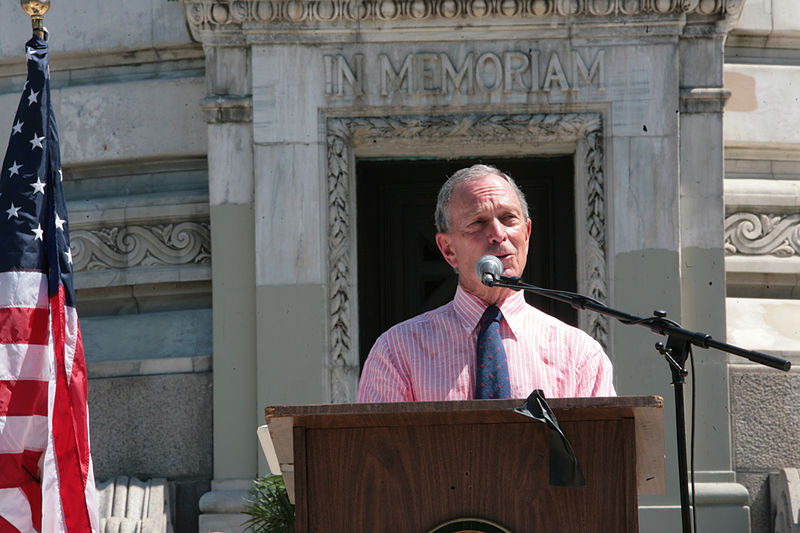In his first interview on philanthropy since leaving the mayor’s office, Michael Bloomberg provided comments that are sure to leave many in the philanthropic community scratching their heads. In the New York Times piece “Private Citizen Bloomberg on Philanthropy,” Bloomberg, 72, told the interviewer a story from early on in his mayoral tenure about a hedge fund manager who pulled him aside at a conference:
[The hedge fund manager] says he’s going to raise $1 billion from the hedge fund community over the next five years to fix public education. When I explained to him that New York City’s annual school budget was $22 billion a year, that was the last time we ever heard from him.
Bloomberg shared this anecdote to highlight his thesis:
All the billionaires added together are, as they’d say, bupkis compared to the amount of money that government spends.
For Bloomberg, it appears that without government intervention, private philanthropy is left floundering: “[The government spends] trillions of dollars. Private philanthropy can’t do that.”
But can’t it? Perhaps a closer look at the assumptions embedded within the mayor’s argument will provide a more optimistic outlook for philanthropy.
For starters, Bloomberg need only adjust his overall scope to find that philanthropy can have a major impact. If $1 billion dollars were not enough for the school system, then how much would it need? According to Forbes, Bloomberg’s net worth is $32 billion. Would a hefty donation (say, just leaving him $2 billion to spare) be enough to turn the public district around? (Assuming, of course, the money would be spent smartly and prudently.) In addition to revitalizing the school system, would it not also help New York balance its budget and enjoy fiscal solvency for years to come?
While I am of course not saying Bloomberg must write a $30 billion check to the NY public schools, it is possible, and not as unthinkable as his prior comments seem to suggest. In fact, my point is simply this: Complaining is not a strategy.
Curiously, Bloomberg agrees:
I don’t like people who complain and don’t try to do something about it. . . . I think there are solutions, and I respect people who try. Sometimes things you try don’t work.
(Who is to say the hedge fund manager mentioned above didn’t go out and try to raise more than the initial $1 billion dollars?)
Additionally, perspective makes a difference. What would have happened if Bloomberg suggested a more reasonable philanthropic goal to the hedge fund manager? Although I understand there may be value to turning down a donation, I’m sure that if a billion dollars were directed towards a particular initiative or specific region of schools, the gift would have made a difference, albeit with a narrower scope.
Another assumption employed by Bloomberg is that government, philanthropy, and businesses are necessarily three distinct enterprises. However, public-private partnerships (such as those found in many charter school relationships, an endeavor that Bloomberg supports), charitable business practices, and government contracting show that there is much overlap between these areas. Instead of comparing government dollars to philanthropic dollars, the model should focus on how these areas could enhance one another (presupposing consistent levels of government spending, of course).
I am certainly not deriding Bloomberg – his business acumen, as well as his dedication to the financial capital of the world, is nothing to scoff at. Additionally, I believe it is up to him to decide how he spends his own money. However, I am saying that he should rethink his philanthropic philosophy: Public spending seldom leads to utopia, and philanthropic contributions often make meaningful differences.






